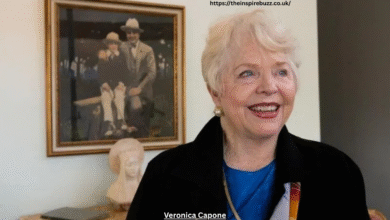Anne Carter Robertson Music Research: Impact on Early Music History

Introduction: Who is Anne Carter Robertson?
Anne Carter Robertson stands as a towering figure in the world of musicology, particularly within the domain of medieval and Renaissance music. As an esteemed scholar, her life’s work revolves around the meticulous study of historical music traditions, shedding new light on forgotten manuscripts and long-lost liturgical traditions. Anne Carter Robertson is best known for her rigorous analytical approach and her commitment to understanding the cultural, religious, and social contexts of early music. Her research has not only enriched our understanding of the medieval soundscape but has also set a high academic standard for future generations of musicologists.
In a world where modern music dominates the academic and public discourse, Anne Carter Robertson’s dedication to early music serves as a refreshing reminder of the roots of musical tradition. Her name is often mentioned alongside the most influential figures in historical music studies. Beyond her intellectual contributions, she has inspired students, colleagues, and institutions through her unwavering passion for preserving musical heritage.
By diving into Anne Carter Robertson biography, academic journey, and contributions, this article aims to present an in-depth view of her legacy. Her story is not just that of a scholar but of a pioneer who has carved out new pathways for understanding the earliest forms of musical expression.
Early Life and Academic Foundations
Anne Carter Robertson journey into the world of musicology began in her formative years, deeply influenced by an early exposure to classical music and choral traditions. Growing up in an environment that encouraged artistic and academic excellence, she developed a profound interest in the historical aspects of music. While much about her early personal life remains private, it is evident that her love for music was not just performative but also intellectual, seeking to understand its origins and evolutions.
She pursued her formal education in some of the most prestigious institutions, including Harvard University, where she began cultivating her expertise in medieval and Renaissance music. At Harvard, she studied under leading scholars who were instrumental in shaping her approach to music research. Her academic training combined the rigors of historical analysis with a passion for manuscript study, a blend that would later become the cornerstone of her career.
During these formative years, Anne Carter Robertson became particularly fascinated by the connections between music, theology, and textual tradition. This fascination led her to explore the intricate details of early music notation and the contextual significance behind the compositions. Her thesis work, which focused on medieval liturgical manuscripts, hinted at the path she would eventually dominate.
Professional Career and Academic Positions
Anne Carter Robertson professional career is marked by several esteemed academic appointments, most notably at the University of Pittsburgh and Harvard University. Her scholarly contributions quickly gained recognition, leading to roles that allowed her to mentor students, collaborate with fellow researchers, and push the boundaries of musicological studies.
At the University of Pittsburgh, Anne Carter Robertson played a pivotal role in developing the musicology program, mentoring students who would go on to contribute significantly to the field. Her approach to teaching was both demanding and nurturing—she expected high standards but offered unwavering support to those committed to the discipline. In her lectures, she often emphasized the importance of viewing music as a reflection of the cultural and religious atmosphere of its time, encouraging students to look beyond the notes on the page.
In addition to her teaching, she served as a visiting scholar and guest lecturer at numerous institutions, further spreading her influence. Her work with archives and musical libraries allowed her to gain firsthand access to rare manuscripts, which she meticulously studied and interpreted. These engagements enriched her own research and helped cultivate a network of scholars committed to early music.
Anne Carter Robertson’s academic life was not confined to the classroom. She was also active in scholarly societies, peer-review panels, and editorial boards, all of which benefitted from her deep knowledge and critical eye.
Major Contributions to Musicology
Anne Carter Robertson most enduring legacy lies in her contributions to the study of medieval and Renaissance music. Her research unearthed forgotten liturgical practices, deciphered complex notational systems, and brought to light a deeper understanding of how early music functioned in both sacred and secular settings. Through her published works, she explored topics such as Gregorian chant, the music of the Divine Office, and the structure of medieval Masses.
One of her most celebrated contributions is her work on the Old Hall Manuscript, a critical source of English sacred music from the late 14th and early 15th centuries. Anne Carter Robertson’s analysis of this manuscript not only helped to authenticate its contents but also opened new dialogues around the transmission of musical texts in pre-print Europe. Her research offered evidence of how musical pieces were shared, copied, and modified across regions and centuries.
In addition to manuscript studies, she has authored and co-authored several influential papers and books, many of which are now required reading in musicology curricula. Her scholarly rigor and unique insights have shaped modern methodologies in the field. Her work is consistently cited in academic texts and has informed the direction of countless doctoral dissertations.
Through her extensive publication record and contributions to major conferences, Anne Carter Robertson has redefined what it means to study early music with both passion and precision.
Anne Carter Robertson Influence on Music Scholarship
Beyond her own research, Anne Carter Robertson influence can be seen in the ripple effect she has created in the field of music scholarship. Her work has guided countless scholars in adopting a more interdisciplinary and context-rich approach to studying early music. She championed the idea that understanding the historical and liturgical setting of a composition is as crucial as analyzing its harmonic and melodic structure.
Her impact is also reflected in the academic communities she helped build. Many of her former students are now prominent musicologists in their own right, carrying forward the standards she established. Anne Carter Robertson has also contributed to reshaping university curricula, advocating for a balanced inclusion of early music studies alongside more contemporary subjects.
Fellow scholars have consistently praised her clarity of thought, her meticulous attention to detail, and her generous spirit when it comes to academic collaboration. Whether through co-authored research or participation in global symposiums, Anne Carter Robertson has built a legacy of intellectual generosity and scholarly excellence.
In summary, Anne Carter Robertson has not only expanded our understanding of early music but also nurtured an academic culture that values historical accuracy, interdisciplinary thought, and educational mentorship.
Conclusion: Celebrating a Life of Scholarship and Sound
Anne Carter Robertson life is a testament to the enduring power of scholarship, passion, and intellectual curiosity. Through her decades-long commitment to medieval and Renaissance music, she has illuminated aspects of history that might otherwise have been lost to time. Her legacy is not just in the books she’s written or the manuscripts she’s analyzed, but in the generations of scholars she has influenced.
As we continue to study and preserve early music, Anne Carter Robertson’s work remains a guiding light. Her contributions serve as foundational texts for musicologists and offer a model for how research can bridge the past and present. In honoring her, we also honor the vast and complex world of music history—a world she has helped us hear more clearly.
Also Read: Kathy May Fritz Face




